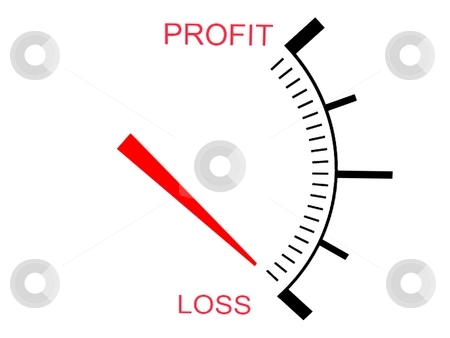Newsletter
Changes to tax offsets
- Tuesday, 01 January 2013 00:33
Consolidation of Dependency Tax Offsets

The Government will remove barriers to participation by consolidating eight existing dependency tax offsets into a single, non-refundable offset from 1 July 2012 for those maintaining a dependent that is genuinely unable to work due to disability or carer responsibilities. This offset will leave taxpayers with dependants who are genuinely unable to work no worse off and, in many cases, better off.
Phasing out the Mature Age Workers Tax Offset
The Government will be investing in better targeted participation programs and improve value for money through phasing out the mature age worker tax offset (MAWTO). The Government will be maintaining the MAWTO for people who are 55 or older on 1 July 2012, as they may have built the MAWTO into their household budgets.
From 1 July 2012, the Government will phase out the mature age worker tax offset (MAWTO) for taxpayers born on or after 1 July 1957. This will not affect any person who currently receives MAWTO.
The Government has already moved to put in place better measures to boost the employment prospects of older Australians who want to stay attached to the workforce. To help those older Australians who wish to continue work, but face barriers to getting a job, the Government will provide a Jobs Bonus (cash incentive) of $1,000 to employers who recruit and retain a worker aged 50 years or over for over three months.
Reforming the Net Medical Expense Tax Offset
A 20 per cent tax offset is available in respect of net medical expenses costing over $2,060.
“Net medical expenses” is the difference between medical expenses incurred relating to you or your dependants, less any refund you may have already received from Medicare or a private health insurance provider. Certain medical expenses are either excluded, such as cosmetic surgery, or require a doctor to direct that an individual receive therapeutic treatment, such as physiotherapy.
From 1 July 2012, the Government will introduce a means test for the Net Medical Expense Tax Offset, preserving the benefit for those under the Medicare Levy Surcharge (MLS) threshold, and reducing the rate and threshold for those over the MLS threshold.
For those people with adjusted taxable income above the Medicare levy surcharge thresholds ($84,000 for singles and $168,000 for couples/families in 2012-13), the claim threshold will be increased to $5,000 and the rate of reimbursement reduced to 10 per cent in the 2012-13 tax year. Taxpayers with income below the MLS threshold will continue to receive the same assistance as currently.
School kids bonus cash payment
- Tuesday, 01 January 2013 00:33
Schoolkids Bonus cash payment to replace Education Tax Offset
The Prime Minister announced that the Government would make a new no-strings cash payment, called the Schoolkids Bonus, to certain families with children at school. It will apply from 1 January 2013, and each year, families will receive the Schoolkids Bonus worth:
- $410 for each child in primary school;

- $820 for each child in high school.
The new automatic payment will replace the Education Tax Refund (or offset) from 1 January 2013. Because the payment is automatic and upfront, it means:
- Parents don't need to keep receipts - it's a guaranteed payment.
- Parents will receive the full amount every time, so families won't miss out if they lose receipts.
- Parents don't have to pay out of their own pocket then wait months to get paid back through the tax system - the payment will be paid upfront twice a year (in January and July each year).
Schoolkids Bonus will not be a taxable payment.
In the same way as the Education Tax Refund, the Schoolkids Bonus will be available to families receiving Family Tax Benefit Part A plus young people in school receiving Youth Allowance and some other income support and veterans' payments.
As part of the transition to the new Schoolkids Bonus, the Education Tax Refund for 2011-12 will be paid out in full to all eligible families as a lump sum payment in June 2012. This means families will receive their full Education Tax Refund entitlement ahead of tax time - so parents won't have to worry about keeping receipts or making claims when they do their tax this year.
More help for families
As part of the Benefits of the Boom package, more than 1.5 million families who receive Family Tax Benefit (FTB) Part A will receive a boost from 1 July next year.
All families that are eligible for FTB Part A will receive an increase:
- Families receiving the maximum rate or part of the maximum rate of FTB Part A with two or more children will receive an extra $600 a year or an extra $300 a year if they have one child.
- Families receiving the base rate of FTB Part A with two or more children will receive an extra $200 a year or an extra $100 a year if they have one child.
ATO Data Matching
- Tuesday, 01 January 2013 00:33
The ATO has a responsibility to the community to ensure that everyone pays their fair share of tax under the law. Each year the ATO cross references information reported in tax returns against transactions reported by other third parties. Information that the ATO match includes:
- investment income (interest, dividends and managed funds) from banks, financial institutions and investment bodies

- employment information and welfare payments
- property and share dividends and disposals
- employee share schemes
- foreign transactions (foreign sourced dividends and interest) and international funds transfers
- superannuation information and personal contributions
- health insurance policies, including the level of cover held by an individual
The ATO will be contacting taxpayers who have apparent discrepancies in the information they have reported in their tax returns. Where necessary the ATO will amend their returns.
Data matching is used by the ATO to also identify those who are either not lodging returns or who are not reporting at all. Where people have not lodged, the ATO will issue assessments based on information they currently hold and impose penalties as appropriate.
The ATO exchanges data with a number of institutions, organisations and Australian Government Agencies including:
- Centrelink
- Child Support Agency
- Department of Immigration and Citizenship
- Australian Securities and Investment Commission (ASIC)
- Medicare Australia, which provides data that enables it to administer the 30 per cent health insurance incentives rebate
- AUSTRAC, which provides information on banking transactions over $10,000
- Share Registries (including data holdings of ASX Limited, Computershare Limited, Link Market Services Limited, Advanced Share Registry Services Ltd and Registries Limited), which provide information on share transactions for CGT purposes
- State and Territory Motor Vehicle Registering Bodies (including RTA NSW, Queensland Transport, Vic Roads etc.), which provide information on all motor vehicles sold, transferred or newly registered in the financial year where the transfer and/or market value is $10,000 or greater
- State and Territory Revenue Offices, which provide information on residential and commercial property purchases and disposals
- Banks, which provide information for credit and debit card sales made by Australian businesses. This data is matched against taxpayer records to identify those participating in the cash economy, and who are potentially skimming some or all of their cash takings or in other ways not reporting all of their income
- E-Bay Australia & Trading Post which provide information on businesses that sell goods online with a value>$20,000.
Businesses to be allowed to carry-back losses
- Tuesday, 01 January 2013 00:33
From 1 July 2012, the Government will provide further tax relief for companies that report a loss through the introduction of a loss carry-back initiative to help businesses facing pressures in our patchwork economy and encourage them to invest and grow.

Currently, businesses are able to carry forward their tax losses to offset future profits and reduce future tax liabilities. The proposed changes would "allow businesses to 'carry back' their losses, to offset past profits and get a refund of tax previously paid on that profit".
In doing so, this reform will mean businesses can use their tax losses now - when they need to - rather than in the future when their businesses are performing better. The carry-back will be available to companies and entities that are taxed like companies and incur losses from 2012-13.
As part of the loss carry-back, from 1 July 2012, companies will be able to carry back up to $1 million worth of losses to get a refund of tax paid in the previous year. From 1 July 2013, companies will be able to carry back up to $1 million worth of losses against tax paid up to 2 years earlier.
Newsletter Signup
Receive FREE information and advice on Accounting & Taxation every Quarter
SignupArchive
- 4th Quarter 2024 (8)
- 3rd Quarter 2024 (9)
- 2nd Quarter 2024 (9)
- 1st Quarter 2024 (11)
- 4th Quarter 2023 (11)
- 3rd Quarter 2023 (9)
- 2nd Quarter 2023 (7)
- 1st Quarter 2023 (8)
- 4th Quarter 2022 (9)
- 3rd Quarter 2022 (8)
- 2nd Quarter 2022 (10)
- 1st Quarter 2022 (9)
- 4th Quarter 2021 (9)
- 3rd Quarter 2021 (8)
- 2nd Quarter 2021 (9)
- 1st Quarter 2021 (7)
- 4th Quarter 2020 (8)
- COVID-19 STIMULUS NEWSLETTER (8)
- 3rd Quarter 2020 (7)
- 2nd Quarter 2020 (9)
- 1st Quarter 2020 (9)
- 4th Quarter 2019 (8)
- 3rd Quarter 2019 (8)
- 2nd Quarter 2019 (7)
- 1st Quarter 2019 (8)
- 4th Quarter 2018 (7)
- 3rd Quarter 2018 (8)
- 2nd Quarter 2018 (8)
- 1st Quarter 2018 (8)
- 3rd Quarter 2017 (7)
- 2nd Quarter 2017 (7)
- 1st Quarter 2017 (7)
- 4th Quarter 2017 (8)
- 4th Quarter 2016 (7)
- 3rd Quater 2016 (7)
- 2nd Quater 2016 (7)
- 1st Quarter 2016 (8)
- 4th Quarter 2015 (6)
- 3rd Quarter 2015 (6)
- 2nd Quarter 2015 (8)
- 1st Quarter 2015 (6)
- 4th Quarter 2014 (7)
- 3rd Quarter 2014 (8)
- 2nd Quarter 2014 (7)
- 1st Quarter 2014 (8)
- 4th Quarter 2013 (7)
- 3rd Quarter 2013 (6)
- 2nd Quarter 2013 (9)
- 1st Quarter 2013 (8)